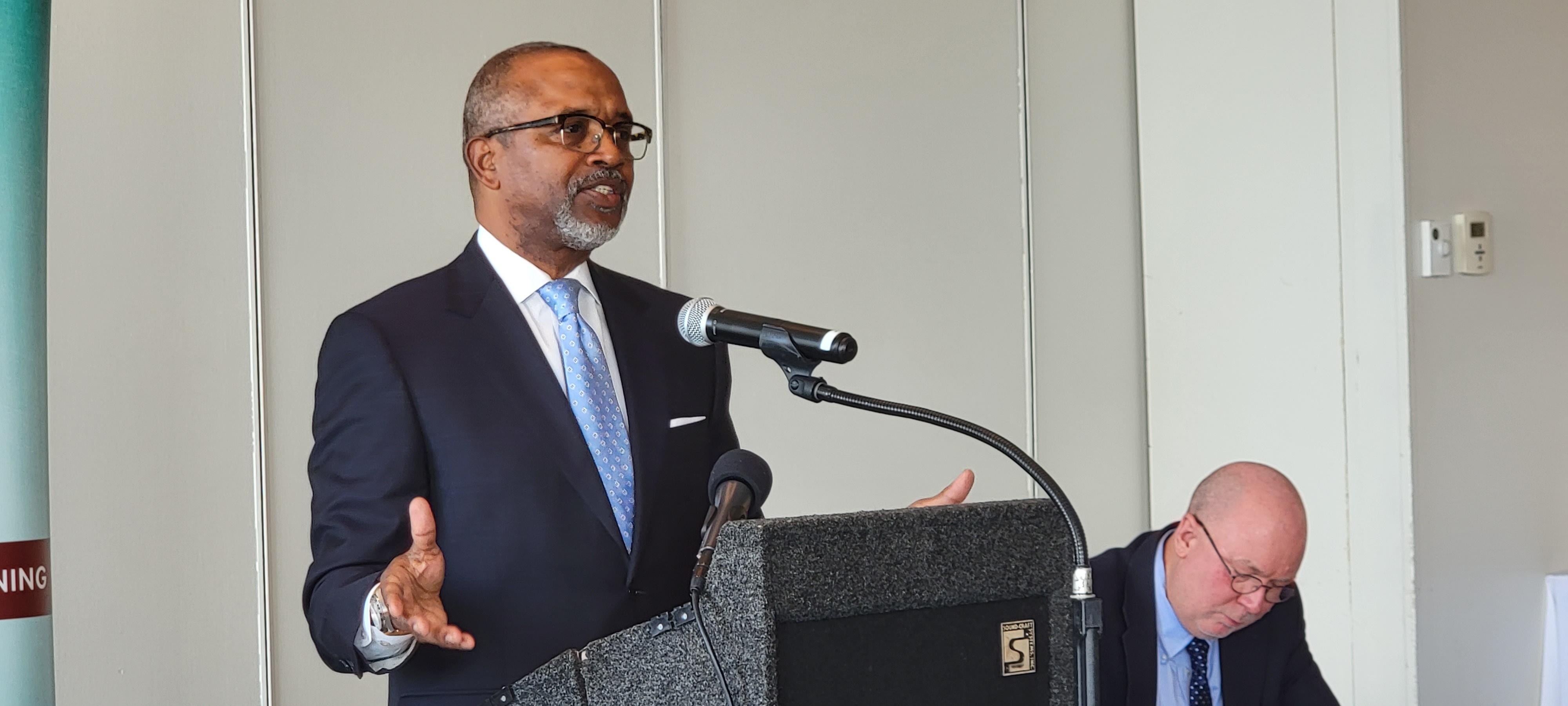House Minority Leader Robert Johnson III is discussing the democratic policy priorities following the first major deadline in the legislative session.
House Minority Leader Robert Johnson III remains focused on Democratic policy priorities


House Minority Leader Robert Johnson III is discussing the democratic policy priorities following the first major deadline in the legislative session.

Democratic lawmakers are outnumbered in the House and Senate in Mississippi, but leaders say they are continuing to push for their major party goals. House Minority Leader Robert Johnson of Adams County says he has been involved in conversations with conservative leadership about tax reform. He says these discussions influenced tax cuts for low-income residents, such as a lower grocery and car tag tax.
“We’ll replace the money we are losing on income tax with money that we’re going to get from businesses we’ve been giving a break to for 20, 30 years or more. And so I’m comfortable with that balance being struck and comfortable with the idea that we won’t lose money and still have money available.”
Conversations are also ongoing about if the state will expand Medicaid. Speaker of the House Phillip Gunn opposes expansion, while Lt. Governor Delbert Hosemann supports offering broader coverage to those who need Medicaid the most. Representative Johnson says if Medicaid was expanded, it could help rural hospitals across the state stay open and offer better care. But he says it may take some time.
“The hospitals pay a tax every year. And they’re paying a tax and they’re also losing money because we haven’t expanded Medicaid. So one of the things we could do, we could give at least a two or three-year tax abatement that the hospitals don’t have to pay and they can use that money to reinvest and pay employees. And we can afford to do it, so they can at least stay open until we can come to some reasoning about Medicaid expansion.”
Representative Johnson says the state must also address failing infrastructure to ensure that people across the state have access to businesses, education, and healthcare.